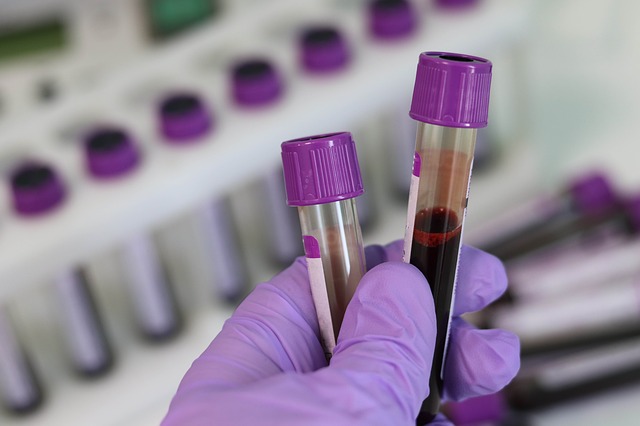So what can you do to make sure a deadly surprise isn’t in store for you?
Happily, a couple of young and scrappy companies are bringing new tests to market with an eye on the aging boomer population. Here, 3 new and little-known medical tests that can detect deadly killers like cancer and heart disease before they happen.

The catch: None of these is standard protocol yet, so you have to ask your doctor for them. And you may need to be a tad pushy, listing risk factors like family history. But you can be assertive when the result is adding years to your life, right?
1. Corus CAD
Think of your coronary arteries as lifelines to your heart; as they become clogged with fatty deposits, your risk for heart attack and other types of heart disease rises exponentially.
Up to now, there’s been no easy way to measure the health of arteries, allowing coronary artery disease (CAD) to remain a silent killer.
Enter Corus CAD, a non-invasive blood test fromCardioDX of Palo Alto, California, that can indicate arterial blockages without resorting to an angiogram.
Although Corus CAD is still considered experimental, it’s quickly being adopted by cardiology centers around the country.
Last month CardioDX presented groundbreaking data at the American College of Cardiology’s 60th Annual Scientific Sessions showing the test’s ability to identify obstructive coronary stenosis, backed up by coronary CT angiography.
The beauty of this test is its simplicity, says early adopter Alan Grossman, MD, of the Heart and Vascular Center of Arizona. All that’s required is a blood draw, which is sent to the CardioDX laboratory and screened for the presence of 23 genes that have been found to be associated narrowing or blocked arteries.
The bottom line: the test, which costs $1195, is covered by some insurance companies, but most don’t approve it yet. CardioDX has a patient advocacy process that includes filing insurance claims and appeals on behalf of patients and helping persuade insurance companies to extend coverage and also provides financial assistance for those deemed eligible for aid.
Three weeks ago, CardioDX announced $60 million in equity financing that the company plans to invest in expanding the availability of reimbursement.
2. Early CDT-Lung for Lung Cancer
Another silent killer, lung cancer kills more than 160,000 people a year in the U.S. and has a shockingly low 16-percent survival rate after five years. The reason? Lung cancer is rarely caught early when tumors are operable. Known as Early CDT-Lung, this new test from Oncimmune of Kansas City shows promise to change that. It measures autoantibodies produced by the immune system in response to lung cancer proteins; a positive result indicates that the immune system has been activated in response to cancer cells.
Because autoantibodies show up early in the cancer process, Early CDT-Lung has the advantage of being able to detect lung cancer before symptoms appear. It has the additional advantage of being a blood test, so it’s non-invasive with no radiation exposure, unlike scans. Results are available from Oncimmune’s laboratory within a week. In some studies the test’s accuracy was greater than 90 percent, proponents say. Unfortunately, if you’re a smoker or former smoker, no test can say you’re definitively cancer-free. But a negative result on this test suggests your body is not reacting visibly to the presence of protein-producing tumors. Exposure to radon, asbestos, or significant secondhand smoke also puts you in the high-risk category.
The bottom line: Cost is $475 and the CDT-lung cancer test is now covered by the majority of major medical insurers as well as Medicare Part B. The company will bill your insurance provider for you. Oncimmune hopes to have a breast cancer blood test based on the same science available within the next year.
3. High-Sensitivity C-Reactive Protein Test
One of the new buzzwords in heart health is C-reactive protein (CRP), which is produced by the liver in response to inflammation. Doctors now consider CRP an important indicator of cardiovascular disease because chronic inflammation is known to damage the interior of artery walls.
The first new general screening test for heart disease to be recommended by the American Heart Association in 20 years, the high-sensitivity C-reactive protein test, also called hs-CRP or ultra-sensitive CRP, is a simple blood test for the presence of CRP. Because it’s sensitive enough to detect lower concentrations of the protein, it can uncover the onset of cardiovascular disease even in someone who appears outwardly healthy.
There’s a reason the AHA is hailing hs-CRP; this test takes the traditional heart checkup a step further, more accurately predicting who’s at risk for heart attack, stroke, and diabetes. (There’s also a reason companies like Astra-Zeneca are sponsoring studies of hs-CRP; results could put many more people on statins.)
If your hs-CRP tests in the high end of the normal range, you have 1.5 to 4 times the risk of having a heart attack compared with those whose hs-CRP values are at the low end of the normal range. Some experts are now calling for widespread screening using hs-CRP for those over 50 based on the JUPITER study, which found that hs-CRP predicted heart disease even in people with no risk factors.
The bottom line: Cost is just $40 – $70 and it’s covered by most insurers, including Medicare, as long as your doctor recommends it based on a family history of heart disease or other risk factors. Unfortunately, certain conditions such as arthritis, autoimmune conditions, and chronic infection also cause an inflammatory response, so if you have one of these conditions the hs-CRP test can’t be used.

